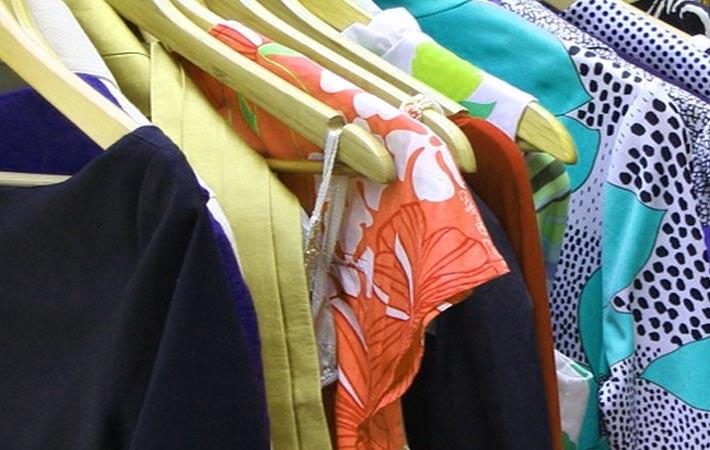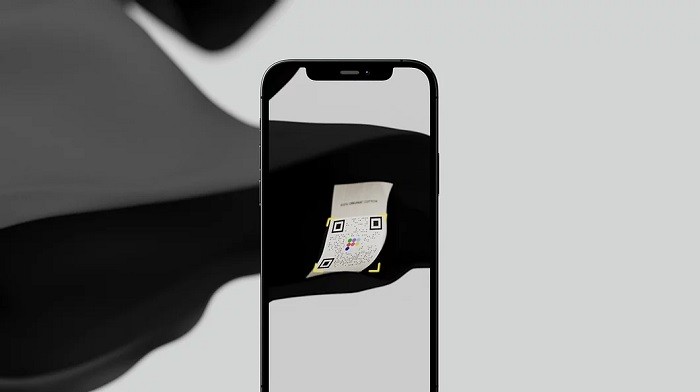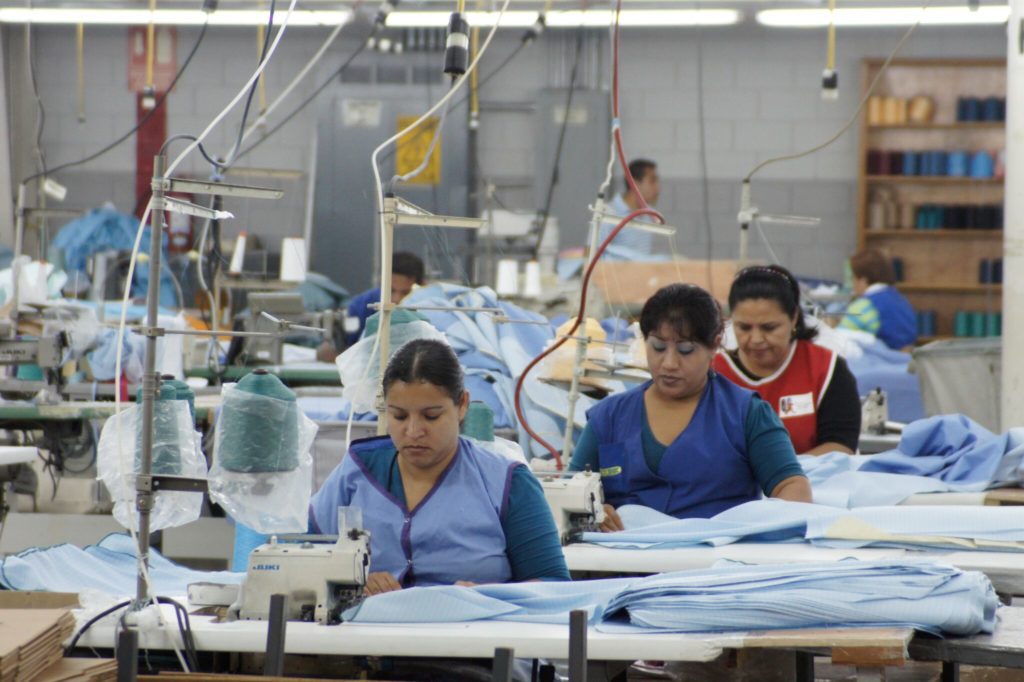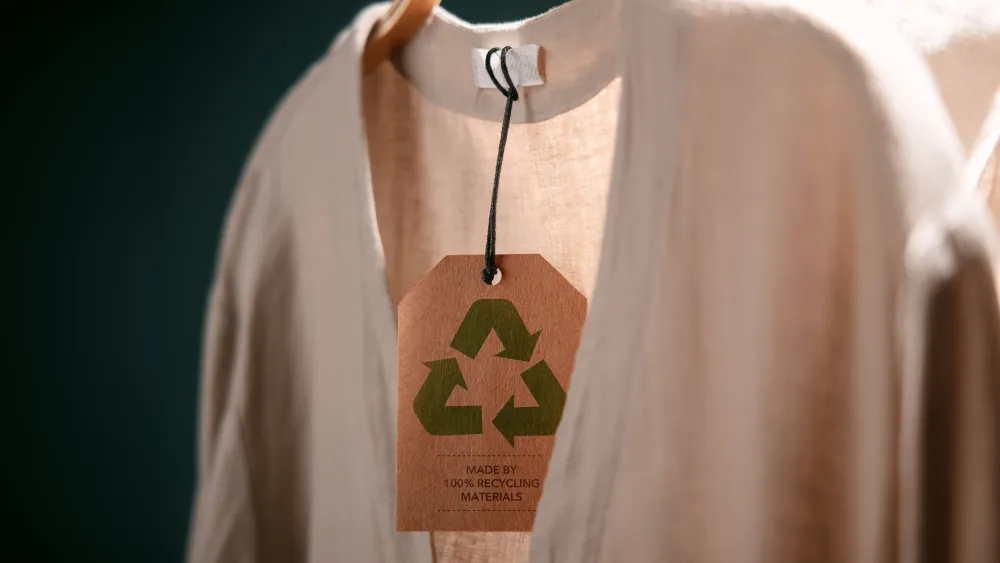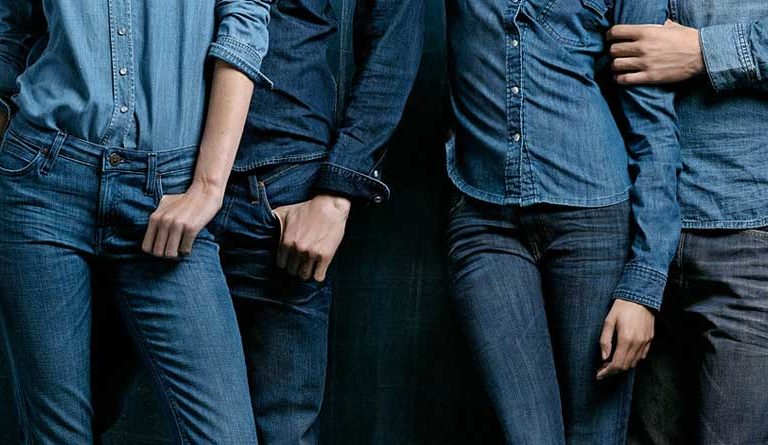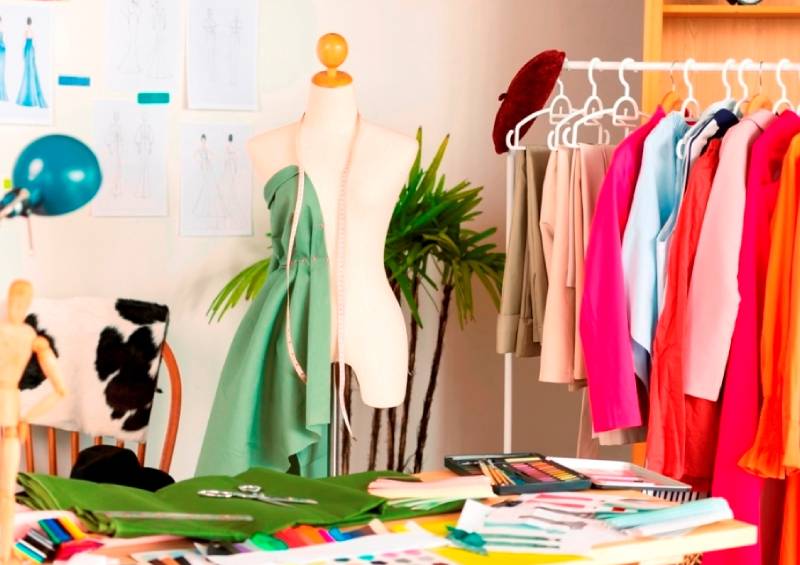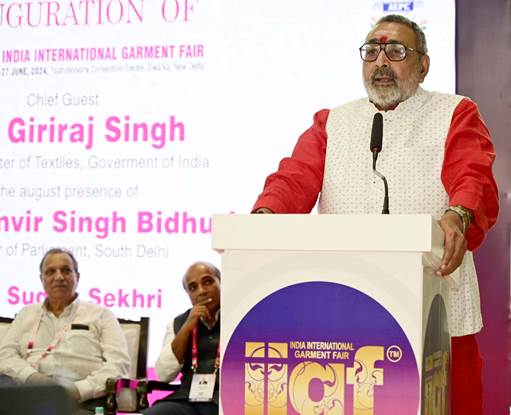FW
Textile exporters in Pakistan say they have been receiving notices from the Federal Board of Revenue (FBR) to settle dues against sales tax refund. These outstanding dues have been calculated on the basis of a new policy of not allowing refund on trade with blacklisted firms. The policy, however, has been implemented with retrospective effect.
Consequently, earlier sales tax adjustment cases were reviewed and outstanding dues worked out against exporters who received refunds over the past two years. Exporters say they have been issued notices demanding tax recovery on account of refunds received against supplies of blacklisted suppliers but that at the time of dealing suppliers were not blacklisted. They insist they have been pressing for quick settlement of pending refund claims, but didn’t expect the FBR to trap them instead with reverse claims. Apparently about 30 to 35 per cent of the working capital of exporters is stuck up with sales tax, customs rebate and federal excise duty refund regimes.
The FBR says bank managers are being coerced to transfer funds to the treasury from the accounts of exporters in the name of recovery and that it was the duty of the FBR to retrieve public money if obtained illegally.
www.fbr.gov.pk/
Korean textile companies set base in Guatemala due to its geographical proximity to the US market and cheap labor. But now these companies are facing problems of higher wages, scrapping of tax benefits and a fall in demand for garments in the United States. Apart from these, corporate tax benefits now available for foreign businesses will be disappearing from next year.
Korean textile companies account for 45 per cent of the industry in the Central American country. Nearly 60 per cent of garment products in Guatemala are sold in the US market. In 2012, garment products reportedly account for 11.7 per cent of the entire exports of the country, followed by coffee (9.5 per cent) and sugarcane (7.9 per cent).
The textile industry has created nearly 90,000 jobs in his country. One Korean company alone created 7,000 jobs. These businesses are operated by Korean emigrants who migrated to Guatemala in the 1980s when a textile boom was created. Over 8,000 Koreans are now living in Guatemala.
But now, feeling the pressure, some Korean companies are mulling relocating their factories to neighboring countries, such as Nicaragua and Haiti, in search of a better business environment.
The government of Guatemala insists it is doing its utmost to retain business, and attract more investment, by creating new incentives for foreign investors, like Korean businesses.
Bangladesh wants the US to reduce discriminatory duty on shipments of garment items so as to make Bangladeshi products more competitive in the American market. The duty structure for Bangladeshi products can be seen as discriminatory as other competing countries pay much less tariff on exports to the US. Bangladesh as a least developed country and is supposed to enjoy zero-tariff benefit from the American market but actually pays the second highest duty for exports to the US.
Vietnam pays 8.38 per cent tax, Indonesia pays 6.36 per cent, China 3 per cent, Germany 1.16 per cent, India 2.29 per cent, Turkey 3.57 per cent and Hong Kong 1.25 per cent on export of goods to the US market. The average duty Bangladesh pays the US is more than 16 per cent and the tariff on garment products is 15.62 per cent. Of the yearly export of Bangladeshi products to the US market, 95 per cent are garment items.
Before the US scrapped Bangladesh's GSP (Generalised System of Preferences) privileges, the country enjoyed duty-free access for 97 per cent of its export items. Bangladesh paid $828 million in taxes to the US customs last year and $3.38 billion over the last five years since 2009.
Workers at some garment and footwear units in Cambodia’s Special Economic Zones have gone on strike. Factories have been stoned, workers threatened and property destroyed.
Now garment manufacturers in Cambodia have urged the government to take action. They fear the strikes will spread to other industrial zones if there are no preventive measures. They have appealed to the Ministry of Labor and local authorities to implement their roles in curbing these strikes immediately in order to ensure security and safety for investors and workers who wish to work.
Thousands of garment and footwear workers at three Special Economic Zones in Bavet City had staged strikes about a week back to demand the $50 US that they claimed that factory owners had promised to give them when they did not join a post-New Year strike, which was organized by eight opposition-aligned trade unions in mid-April.
However, garment manufacturers have denied making such a promise and accused the opposition-aligned trade unions of fabricating this information after they failed to attract workers for their post- New Year strike. Wage disputes in Cambodia’s garment sector rage furiously. The garment and footwear industry, the kingdom's largest foreign exchange earner, comprises 960 factories with about 6,20, 000 workers. The sector earned $5.5 billion in revenues last year.
APLF's Materials, Manufacturing and Technology (MM&T) show was held March 31 to April 2, 2014, Hong Kong Convention and Exhibition Centre. MM&T is the meeting place for the global leather industry. This was the show’s 30th anniversary. Exhibitors from 50 countries and regions showcased their products. Exhibitors were from countries like Argentina, Brazil, China, Germany, Hong Kong, India, Italy, Japan, Korea, Mexico, Pakistan, Taiwan, Thailand, Turkey, UK and US.
More than 8,000 buyers from outside China and Hong Kong visited the fair this year, representing an impressive increase of 8.73 per cent in comparison to last year. Brazil was the focus at MM&T this year and 38 Brazilian companies exhibited at the fair. Representatives from Brazil presented several seminars at the Leather Forum on subjects such as traceability, environment and sustainability.
The Council for Leather Exports (CLE) from India participated and showcased products from 57 Indian companies. A wide range of finished leather, leather garments, fashion accessories and small leather goods were on display. The next edition of Materials, Manufacturing and Technology will take place on March 30 to April 1, 2015, same venue.
APLF is based in Hong Kong. It provides global companies a chance to trade and exchange information at a number of trade fairs. It organises a number of trade exhibitions which focus on fashion and lifestyle. These include Materials Manufacturing and Technology, All China Leather Exhibition, China International Footwear Fair and Moda Shanghai.
www.aplf.com/
Cintas Corporation has introduced its new AR Red Suiting collection made with DuPont Sorona renewably sourced fiber. The fabric reduces carbon dioxide emissions used in the manufacturing process by as much as 63 per cent. The collection was created in collaboration with Austin Reed and consists of options for both men and women.
Cintas’ partnership with Austin Reed has resulted in environmentally friendly and fashionable garments that blend functionality, comfort and innovation. Cintas is committed to identifying sustainable options that lessen the impact of its manufacturing processes.
Sorona is an eco-friendly, plant-based fiber made with renewable, naturally occurring starch. Garments made with Sorona are soft, strong and dry quickly. Sorona also helps fabrics stretch comfortably, stay wrinkle-free and retain their shape. Garments in the AR Red Suiting collection include blazers, slacks and skirts for women and blazers and pants for men. In order to keep wearers cool and comfortable, the blazers are fully lined with breathable Aerocool technology and feature multiple inside pockets for added functionality. The collection is offered in a full range of sizes, including petite.
Cintas designs, manufactures and implements corporate identity uniform programs, and provides entrance mats, restroom cleaning and supplies, tile and carpet cleaning, promotional products, first aid, safety, fire protection products and services and document management services.
www.cintas.com/
Textile technology firm Jeanologia has developed new uses for its e-soft resource saving nano-bubble technology, including the ability to apply 3D resins to denim, water repellent coatings, and wrinkle-free finishes to a wider range of clothing.
At the Denim by Premiere Vision, which will be held in Barcelona for the first time, Jeanologia will be showing new applications of its e-soft finishing technology that uses nano-bubbles to apply chemical finishes to textiles rather than water. Previously used for softening denim fabrics garments with minimal water usage and virtually no residues, this technology can now be applied to 3D resins, water repellent coatings, and easy care wrinkle-free fabric treatments.
Instead of using traditional continuous finishing processes, garment dipping or hand sprays, e-soft works by dissolving the chemical-based finish in a small amount of water and agitating the mixture into a fine mist of microscopic, chemical-laden bubbles. This impregnated fine mist is then fed into a rotating tumbler machine where the textile finish is exhausted on to the surface of the garment or fabric. It can be retrofitted onto existing equipment.
The application of softeners with e-soft provides the greatest savings in terms of electricity, water and chemicals, which are said to be 79 per cent, 98 per cent and 80 per cent respectively. The company also has plans to extend this technology to anti-microbial, microencapsulation, enzyme washes and garment dyeing in future.
www.jeanologia.com/
Indirect sourcing, a non-transparent practice of sub-contracting, is the root cause of safety risks and poor working conditions in the readymade garment sector of Bangladesh. Though indirect sourcing has helped boost the garment industry and Bangladesh's economy, however, global brands doing business in the country need to assess the overall condition of factories and address risks.
Indirect sourcing has become an essential feature of the garment sector in Bangladesh as a means of increasing margins and boosting production while keeping costs low. In the absence of regulation by the government, the prevalence of indirect sourcing has resulted in a supply chain driven by the pursuit of lowest nominal costs.
That means that factories receiving subcontracts are operating on razor-thin margins that leave concerns about safety and workers' rights perpetually unaddressed. However, subcontracting is a reality in the country’s apparel sector as many local readymade garment manufacturing units are not capable enough to do business directly with foreign buyers.
Bangladesh’s apparel makers say sub-contracting is not the sole risk factor and there are a few more. They say factories especially small and medium ones are not adequately compliant so they have no option but to depend on the indirect sourcing business.
Exports of textile products from Pakistan witnessed positive growth at 7.99 per cent in the first nine months of the current fiscal compared to the corresponding period last year. Textile products that witnessed a positive trade growth include: raw cotton exports which increased by 43.48 per cent. Exports of cotton cloth increased by 6.99 per cent while exports of yarn (other than cotton yarn) increased by 10.03 per cent. Exports of bed wear showed an increase of 21.39 per cent. Exports of readymade garments increased by 9.36 per cent.
On a year-on-year basis, textile exports increased by 6.39 per cent in March 2014 when compared to March 2013. On a month-on-month basis, textile exports witnessed a positive growth of 9.19 per cent in March 2014 when compared to the exports in February 2013.
Other textile products that witnessed an increase in trade include made up articles (excluding towels and bed wear), exports of which increased by 17.94 per cent. Textile products that witnessed negative growth in trade during the period include: cotton yarn, exports of which decreased by 5.93 per cent. Exports of cotton carded or combed decreased by 42.53 per cent, exports of towels decreased by 2.55 per cent while exports of tents, canvas and tarpaulin decreased by 23.84 per cent.
This year Cotton Council International (CCI) for the first time promoted the Cotton Leads program at the Heimtextil trade show in Frankfurt, Germany. Cotton Leads is a program that is committed to responsible cotton production. It stresses on sustainability, best practices and traceability in the supply chain. The program is initiated by Australia and the United States. It offers manufacturers, brands and retailers a reliable cotton supply chain solution and confidence that their raw material is responsibly produced and identified.
The Cotton USA booth attracted visitors from all levels of the cotton and home textiles industry and 10 companies from Europe and Turkey signed on to the Cotton Leads program during the show. Heimtextil attracts retail buyers as well as the first levels of the cotton supply chain from merchants to mills. The Cotton USA booth at Heimtextil was an important opportunity for CCI to present the global Cotton USA marketing and licensing program to all segments of the cotton supply chain based on the fact that many key companies in the cotton home textile industry are vertically integrated.
Heimtextil is the world’s leading trade show for home textiles. Cotton Council International staff and representatives from the US, Europe and Turkey attended Heimtextil exhibition during January 8 to 11, 2014.
www.heimtextil.messefrankfurt.com/

